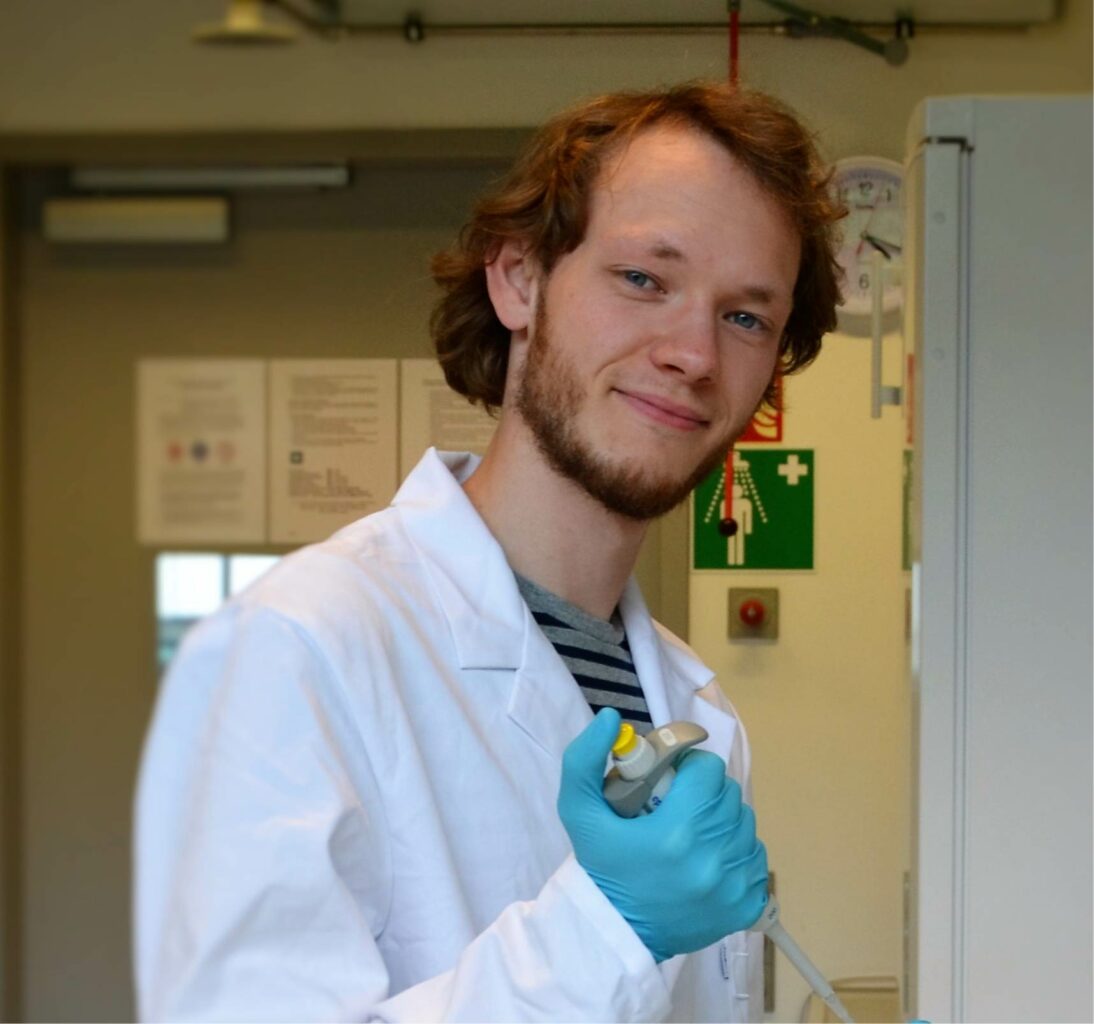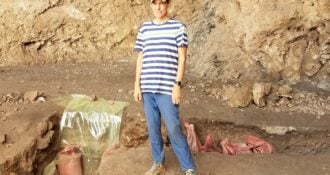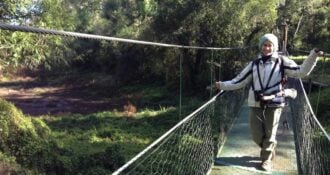Frido Welker is a postdoctoral researcher at the Max Planck Institute for Evolutionary Anthropology, Department of Human Evolution, and the Natural History Museum of Denmark, University of Copenhagen. He was awarded a Leakey Foundation Research Grant in our fall 2017 cycle for his project entitled “Towards complex Pleistocene hominin proteomes using multiple proteases.”
Dr. Welker discovered ancient proteins in the teeth of a Denisovan jawbone fossil which was announced on May 1 in the journal Nature.
In the past two decades or so, ancient DNA analysis has swept through paleoanthropology, changing the way we understand interactions between past hominin groups, their interactions with fauna species, and the relationships between now-extinct, sometimes iconic, Ice Age fauna and their modern relatives. However, at the same time, large periods of time, as well as geographic areas that are key to paleoanthropology, remain inaccessible to ancient DNA analysis due to irreversible degradation of this biomolecule.
Recent research has demonstrated that ancient proteins survive for longer periods of time than ancient DNA, prompting speculations that ancient protein analysis might be able to overcome some of the barriers on ancient DNA survival. I am interested in exploring the use of ancient proteins in human evolution questions.
As with every emerging field, there is a need for lots of methodological development. My Leakey Foundation research grant focuses on one such aspect: protein digestion. Although protein extraction methods differ between most ancient protein studies, almost all studies use a single and similar protease (trypsin) to cut extracted proteins into smaller, measurable protein sequences called peptides. However, various aspects unique to our ancient proteins, such as extensive and irreversible amino acid modifications, mean that trypsin is not always suited to properly cleave our ancient proteins into peptides. At least, that is what the sparse literature on trypsin cleavage efficiency seems to suggest.
In the project, we are testing the cleavage efficiency of six different proteases (enzymes which break down proteins and peptides), including trypsin, on four different bone samples. The bone specimens are all Late Pleistocene in age and derive from Paleolithic sites in France and Germany. We hope to find out if particular proteases have enhanced abilities to retrieve larger, more informative ancient proteomes. This will help in future studies of ancient hominin proteomes, provide further insights into the relationships of now-extinct species, and minimize sample loss of unique fossils.







Comments 0